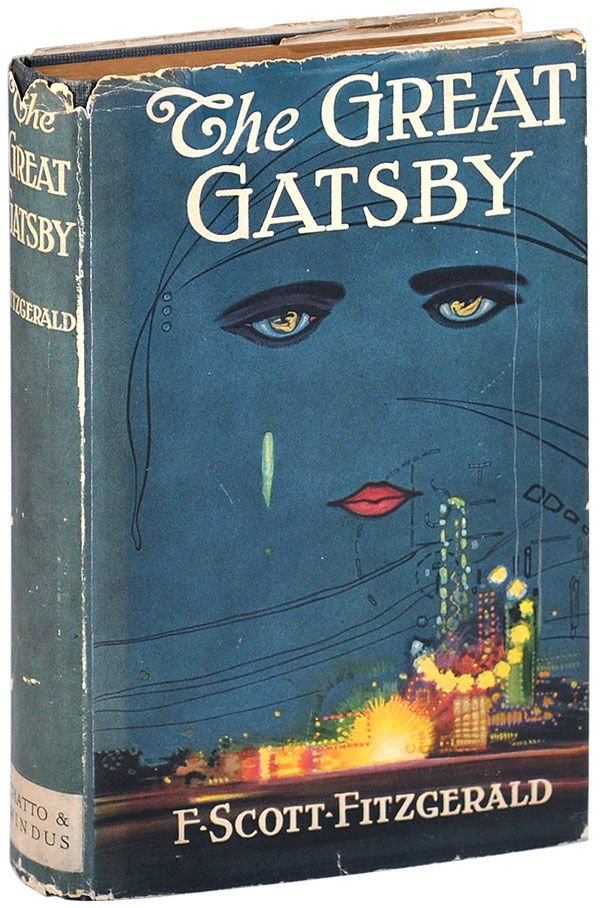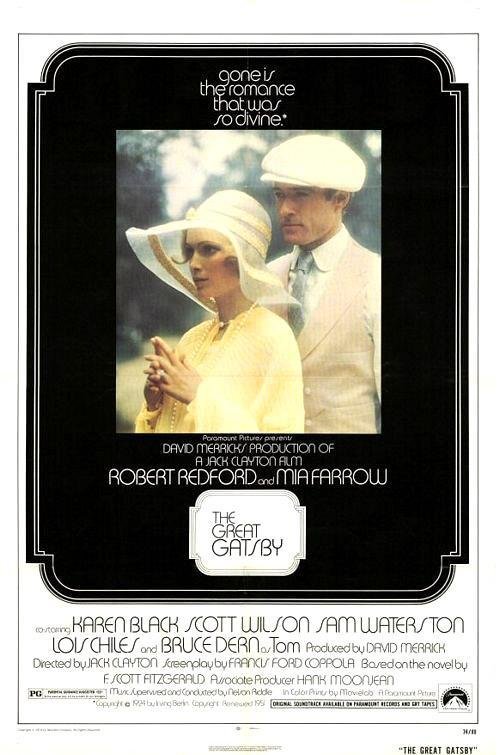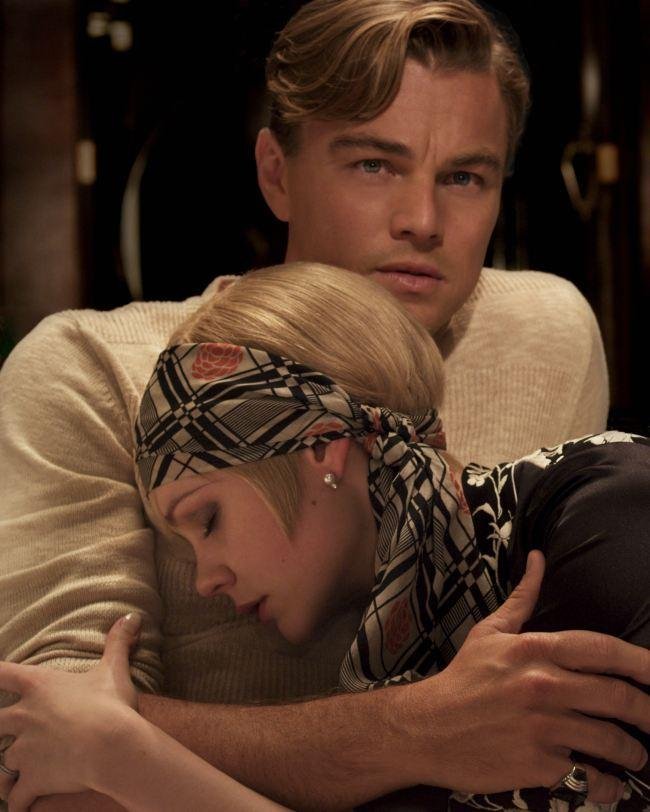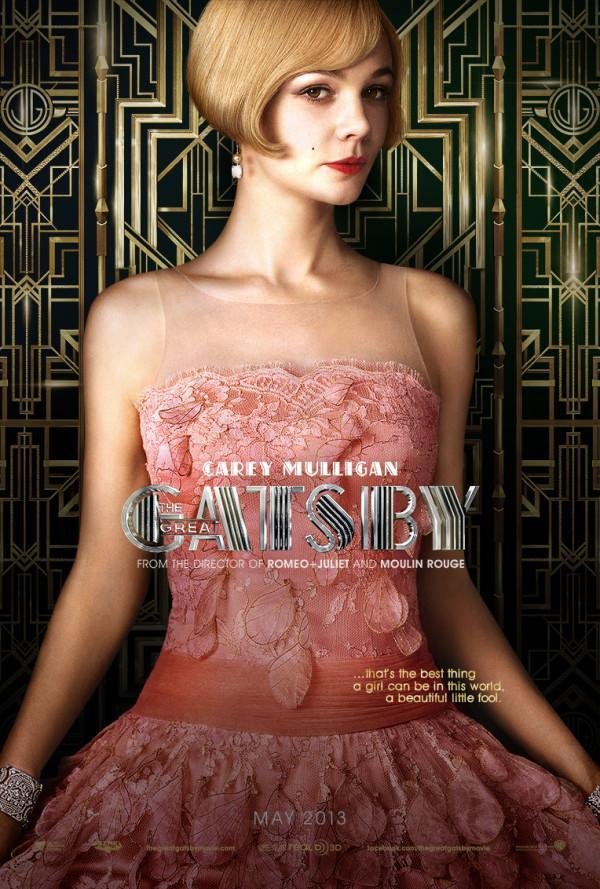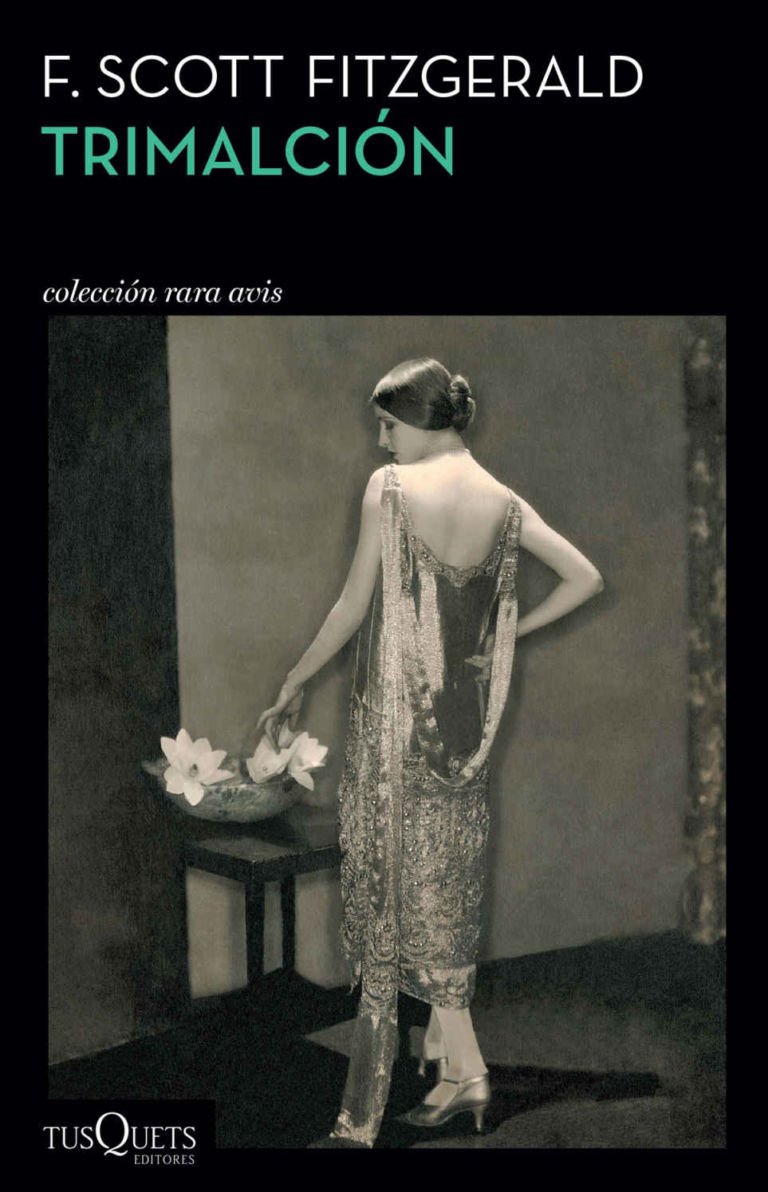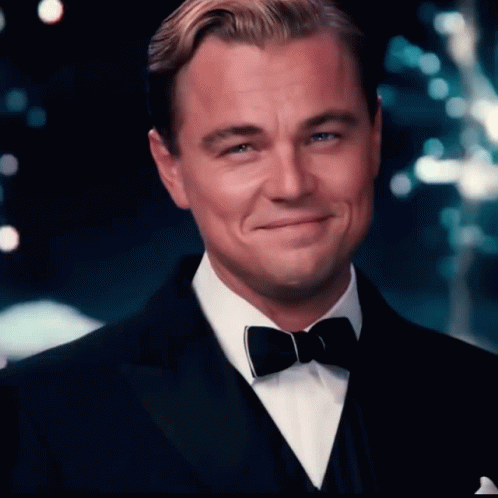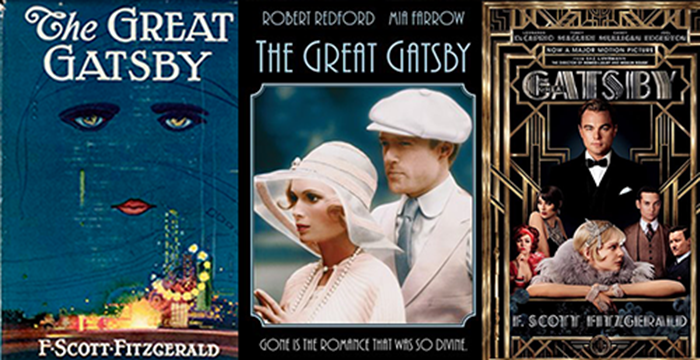
La novela más famosa de F. Scott Fitzgerald
Like most readers I like to read the novels before seeing their film adaptations, but that also means rewatching the movie every time I reread the book. Not only recently did I reread The Great Gatsby, the most famous novel by F. Scott Fitzgerald, but I also read for the first time Trimalchio the novel that Fitzgerald wrote and which, after some advice from his editor, became The Great Gatsby as we know today and. To round off the experience I saw its last two adaptations to the big screen, the one from 1974 and the one from 2013, but which one is better?
Como a la mayoría de los lectores me gusta leer las novelas antes de ver sus adaptaciones cinematográficas, pero eso también significa volver a ver la película cada vez que releo el libro. Recientemente no sólo leí de nuevo The Great Gatsby, la novela más famosa de F. Scott Fitzgerald sino que además leí por primera vez Trimalción la novela que Fitzgerald escribió y que después de unos consejos de su editor se convirtió en The Great Gatsby tal como lo conocemos hoy y para redondear la experiencia vi sus últimas dos adaptaciones a la gran pantalla, la de 1974 y la de 2013, pero ¿cuál es mejor?
For those unfamiliar with the story, The Great Gatsby is set in New York in the mid-1920s. The story is told by Nick Carraway, a man in his late thirties who starts working on Wall Street and lives in a house on Long Island, in an area called the West Egg. It is important to mention that the new rich live in the West Egg (although Carraway rents a very small house there for a low price) and in the East Egg traditionally wealthy families live, therefore the story focuses on characters from high american society, a world Fitzgerald knew well. Newly arrived, Nick crosses the bay from West Egg to East Egg to visit Daisy Fay, his cousin, who has recently married Tom Buchanan, a man of great fortune, and meets Jordan Baker, a famous golfer, there. But it doesn't take long for us to realize that beyond these interrelated characters, the protagonist of the story is another, a mysterious man who attracts everyone's attention because he throws luxurious and majestic parties, but about whose life nothing is known for sure. This man happens to be Nick's neighbor, but everyone seems to know something, or rumor something, before him, what's the neighbor's name? Jay Gatsby.
Para quienes no están familliarizados con la historia, The Great Gatsby se ambienta en Nueva York a mediados de los años 20. Quien cuenta la historia es Nick Carraway, un hombre de casi treinta años que comienza a trabajar en Wall Street y vive en una casa en Long Island, en una zona llamada el West Egg. Es importante mencionar que en el West Egg viven los nuevos ricos (aunque Carraway alquila allí una casa muy pequeña por un precio bajo) y en el East Egg viven las familias tradicionalmente adineradas, por lo tanto la historia se centra en personajes de la alta sociedad norteamericana, un mundo que Fitzgerald conoció bien. Recién llegado, Nick cruza la bahía desde el West Egg hasta el East Egg para visitar a Daisy Fay, su prima, recién casada con Tom Buchanan, un hombre con una gran fortuna, y conoce allí a Jordan Baker, una famosa jugadora de golf, pero poco tardamos en darnos cuenta de que más allá de estos personajes relacionados entre sí, el protagonista de la historia es otro, un hombre misterioso que llama la atención de todos porque da unas lujosas y majestuosas fiestas, pero de cuya vida no se sabe nada a ciencia cierta. Da la casualidad de que este hombre es vecino de Nick, pero todos parecen saber algo, o rumorar algo, antes que él, ¿cuál es el nombre del vecino? Jay Gatsby.
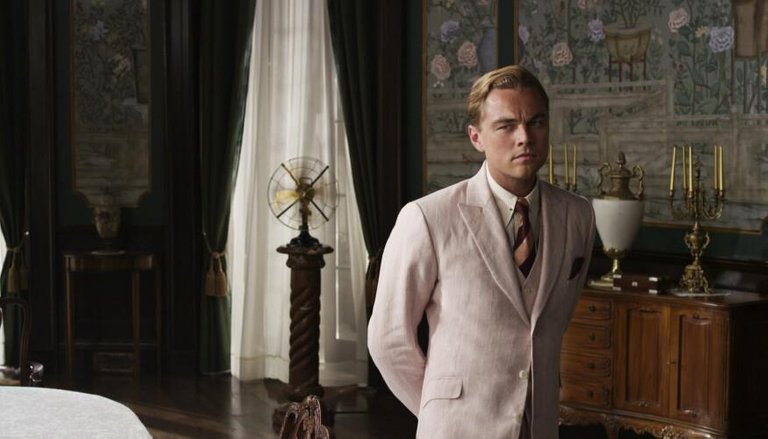
As the main witness to certain events and Gatsby's closest friend during the three months covered by the story, it will be Nick who tells the story, both his own and that of his neighbor, whose sudden appearance in that part of the country stems from the idea of win back a long lost love: Daisy Fay. Faced with Nick's pronouncement that you can't relive the past, Gatsby reflectively insists that of course you can and that's what he'll try.
Como testigo principal de ciertos acontecimientos y amigo más cercano de Gatsby durante los tres meses que abarca la historia, será Nick quien cuente la historia, tanto la suya como la de su vecino, cuya repentina aparición en esa parte del país viene de la idea de recuperar un amor perdido hace tiempo: Daisy Fay. Ante el pronunciamiento de Nick de que no se puede revivir el pasado, Gatsby, reflexivo, insiste en que claro que se puede y es eso lo que intentará.
Those elements are enough to make a good story and Fitzgerald's writing is perfect for leaving clues here and there so that the reader connects the dots, unites pieces and assembles the story that lies hidden before his eyes. This climate of mystery and secrets was maintained on the big screen, at least in its last two adaptations. Success that it was, the book was quickly adapted for film and to date there have been a TV version (with Paul Raudd in the role of Nick Carraway) and four film versions, the first in 1926, the next in 1949, the third in 1974 and the last one in 2013. I couldn't find the others, but I did see these last two (the one from 2013 I already knew) so I wanted to compare them and see which of them was more faithful to Fitzgerald's book and the original intention of the story in its first version.
Esos elementos son suficientes para conformar una buena historia y la escritura de Fitzgerald es perfecta para ir dejando pistas aquí y allá de forma que el lector vaya atando cabos, uniendo piezas y armando la historia que yace oculta ante sus ojos. Este clima de misterio y de secretos se mantuvo en la gran pantalla, al menos en sus dos últimas adaptaciones. Siendo el éxito que fue, el libro rápidamente fue adaptado al cine y a la fecha de han hecho una versión para TV (con Paul Raudd en el papel de Nick Carraway) y cuatro versiones cinematoráficas, la primera en 1926, la siguiente en 1949, la tercera en 1974 y la última en 2013. No pude encontrar las demás, pero sí vi estas dos últimas (la de 2013 ya la conocía) así que quise compararlas y ver cuál de ellas era más fiel al libro de Fitzgerald y a la intención original de la historia en su primera versión.
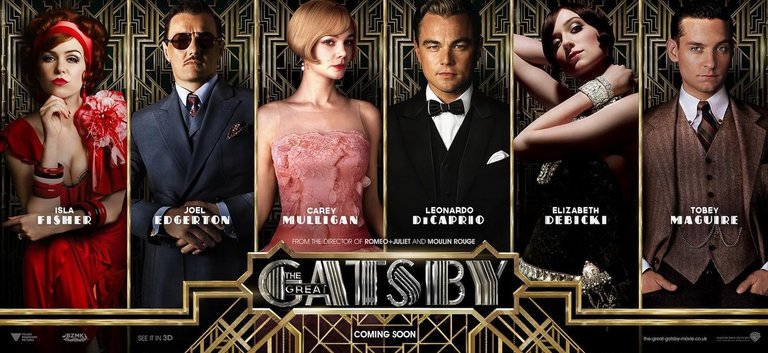
Both versions (the one from '74 and the one from 2013) have great actors. The first stars Robert Redford and Mia Farrow, while in the second we find Leonardo DiCaprio, Tobey Maguire, Carey Mulligan, Joel Edgerton, Isla Fisher and a newly-known Elizabeth Debicki. I think that in most of the roles, the casting of the 2013 version, directed by Baz Luhrmann, was better than that of the Jack Clayton version, especially DiCaprio's Gatsby who seemed closer to the character in the book than that of Robert Redford, whom I felt very content during a good part of the story. Perhaps at times, Mia Farrow's Daisy is more hysterical (like the one in the book) than Carey Mulligan's, but I must admit that the latter is charming in a character who does not have the nobility that Gatsby wants to see in her and I liked it more the chemistry between her and DiCaprio than between Redford and Farrow. So, in terms of the essence of most of the characters and the performances, I find the 2013 version to be superior, as well as in the costumes, in the staging (although it uses too many special effects for my taste), the locations and the recreation of that New York of the twenties.
Ambas versiones (la del '74 y la de 2013) tienen grandes actores. La primera está protagonizada por Robert Redford y Mia Farrow, mientras que en la segunda nos encontramos con Leonardo DiCaprio, Tobey Maguire, Carey Mulligan, Joel Edgerton, Isla Fisher y una recién conocida Elizabeth Debicki. Creo que en la mayoría de los papeles, el casting de la versión de 2013, dirigida por Baz Luhrmann, estuvo mejor que el de la versión de Jack Clayton, sobre todo el Gatsby de Di Caprio que me pareció más cerca del personaje del libro que el de Robert Redford, a quien sentí muy contenido durante buena parte de la historia. Quizás en algunos momentos, la Daisy de Mia Farrow es más histérica (como la del libro) que la de Carey Mulligan, pero debo reconocer que esta última resulta encantadora en un personaje que no posee la nobleza que Gatsby quiere ver en ella y me gustó más la química entre ella y Di Caprio que entre Redford y Farrow. Así que, en cuanto a la esencia de la mayoría de los personajes y a las actuaciones, me parece que la versión de 2013 es superior, como también lo es en el vestuario, en la puesta en escena (aunque utiliza demasiados efectos especiales para mi gusto), las locaciones y la recreación de ese Nueva York de los años veinte.
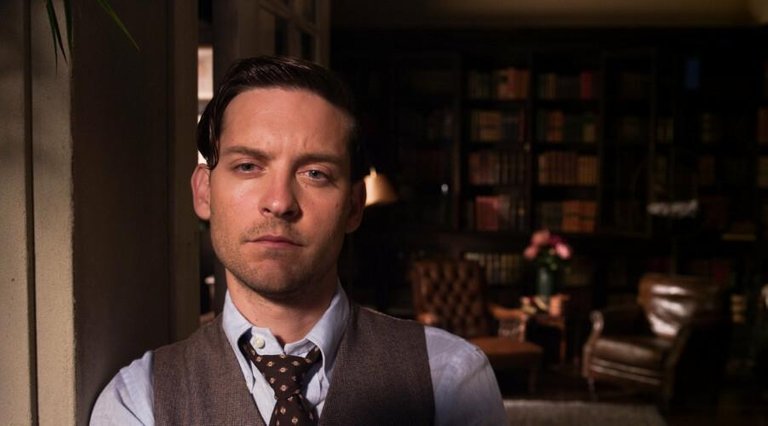
However, I didn't like the soundtrack of Baz Luhrmann's version (which includes a lot of modern songs) and I thought he and Craig Pearce took too much license with the script, how did they come up with the idea that it might be good for Nick Carraway told the story from a mental institution? Plus, that whole thing about Nick writing the story as Fitzgerald himself on the advice of his therapist... I don't know, I didn't like it, whereas the script for the '74 version, just written and by none other than Francis Ford Coppola himself (yes, the Director of The Godfather) is much more faithful to the book, so much that he takes many whole sentences as is. Let's see, it's not about copying the novel in the script either, a resource that I think Coppola abused, but when adapting the story you must be faithful to the central facts and the essence of the characters, and that of turning Nick - narrator of the story - in an alcoholic with mental problems when in the book itself he says that he had only gotten drunk twice in his life, it not only damages the character but also questions the veracity of what he says because if Nick is In a mental hospital, how can you prove that what tells has really happened? And in that case it's already another story, not the one Fitzgerald wrote.
Sin embargo, no me gustó el soundtrack de la versión de Baz Luhrmann (quien incluye muchas canciones modernas) y me pareció que él y Craig Pearce se tomaron demasiadas licencias con el guión, ¿cómo se les ocurrió que pudiera ser una buena idea que Nick Carraway contase la historia desde un sanatorio mental? Además, todo ese asunto de que, por consejo de su terapeuta, Nick escriba la historia como si fuera el propio Fitzgerald... no lo sé, no me gustó, mientras que el guión de la versión del '74, escrito nada más y nada menos que por el mismísimo Francis Ford Coppola (sí, el Director de The Godfather) es mucho más fiel al libro, tanto que toma muchas frases enteras tal cual. A ver, no se trata tampoco de copiar la novela en el guión, recurso del que creo que Coppola abusó, pero al adaptar la historia se debe ser fiel a los hechos centrales y a la esencia de los personajes, y eso de convertir a Nick - narrador de la historia - en un alcohólico con problemas mentales cuando en el propio libro dice que solamente se había emborrachado dos veces en la vida, no sólo daña al personaje sino que pone en tela de juicio la veracidad de lo que cuenta porque si Nick está en un sanatorio mental, ¿cómo poder probar que lo que cuenta en verdad ha sucedido? Y en ese caso ya se trata de otra historia, no de la que Fitzgerald escribió.
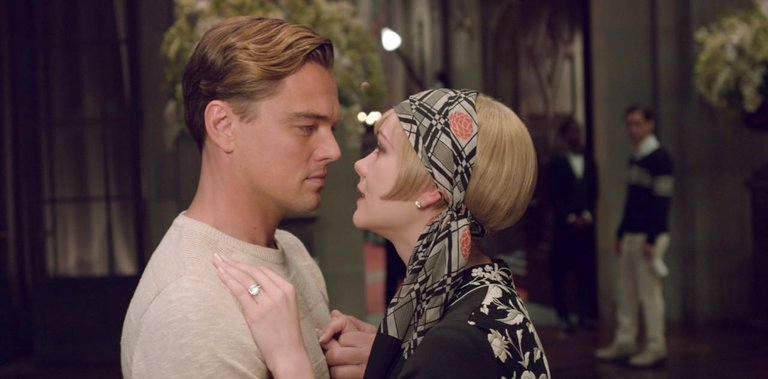
Compared to his later version, I like Gatsby's development in Trimalchio a bit more because it remains more of a mystery until his lengthy confession to Carraway after the accident. That is to say, during the first part there are some rumors, but then it is he, with his own voice, who clarifies them. However, in The Great Gatsby, the rumors are bigger, the insinuations more damning, and Jay is given a reputation as a smuggler, all through the mouths of others, but with a veracity that makes us believe it without really knowing it, and some clarifications are spoken by Carraway and not by the hero of the story, so in that respect I prefer the original version of Fitzgerald that has a little more Gatsby. Now then, between the two films that I saw, it's difficult to choose because both have their appeal, but I think that the best thing would have been for Luhrmann to have reused Coppola's script, adding the talent of that genius to the staging that these times allow and to the great performances of Leonardo Di Caprio and Carey Mulligan, that would have been the definitive adaptation of this story. Have you read the novel? Have you seen any of the versions? I read you in the comments.
Comparada con su versión posterior, me gusta un poco más el desarrollo de Gatsby en Trimalción porque se matiene más en un misterio hasta su extensa confesión ante Carraway después del accidente. Es decir, durante la primera parte hay algunos rumores, pero luego es él, con su propia voz, quién los aclara. Sin embargo, en The Great Gatsby, los rumores son mayores, las insinuaciones más condenatorias y se le imprime a Jay una fama de contrabandista, todo por boca de los demás, pero con una veracidad que nos hace creerlo sin saberlo realmente y algunas aclaraciones son pronunciadas por Carraway y no por el héroe de la historia, así que en ese aspecto me quedo con la versión original de Fitzgerald que tiene un poco más de Gatsby. Ahora bien, entre las dos películas que vi, es difícil escoger porque ambas tienen su atractivo, pero creo que lo mejor hubiera sido que Luhrmann hubiera reutilizado el guión de Coppola sumando el talento de aquel genio a la puesta en escena que permiten estos tiempos y a las grandes actuaciones de Leonardo Di Caprio y Carey Mulligan, esa habría sido la adaptación definitiva de esta historia ¿han leído la novela? ¿vieron alguna de las versiones? Los leo en los comentarios.
Reviewed by | Reseñado por @cristiancaicedo
Other posts that may interest you | Otros posts que pueden interesarte:
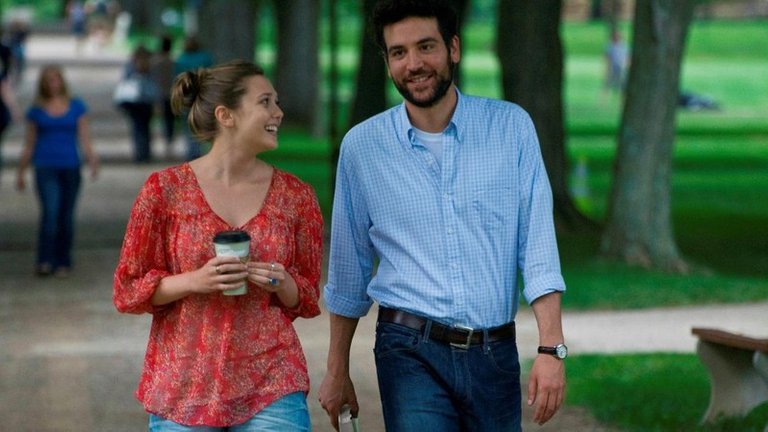 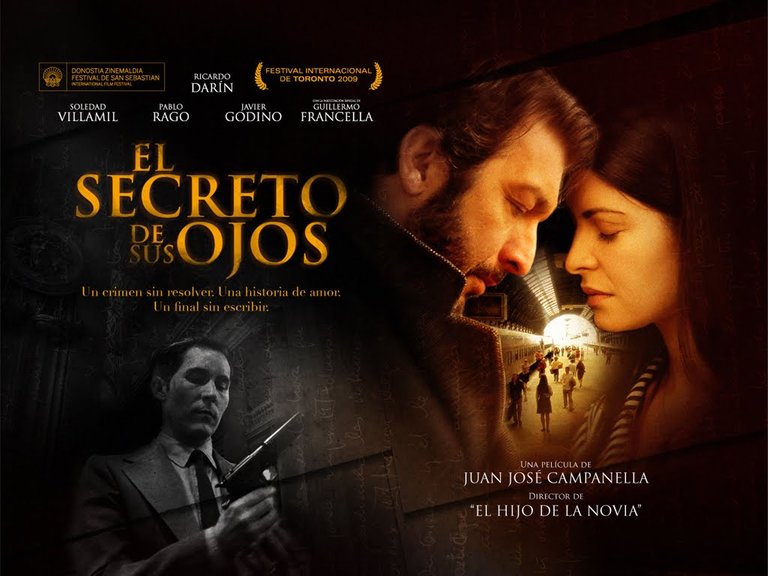 |
|---|
